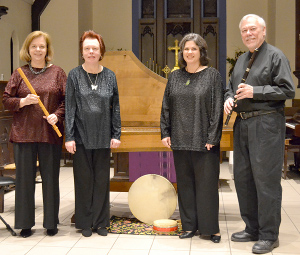Grant Llewellyn led the North Carolina Symphony in a varied program with a predominantly French flavor. Leading off was a suite of dances from the comédie lyrique Platée by Jean-Philippe Rameau. For my money, Rameau is the most important and rewarding French composer of the 18th century and easily the equivalent of his contemporary Handel in stature, but little-known until recently because of the neglect of French Baroque music in general, which was overcome by the inroads of the Italian style after his death. The last quarter-century has seen a considerable revival of Rameau opera with period instruments and attention to historical performance in Europe and the USA, with numerous productions available on DVD.
It was good to hear Rameau in Raleigh, but Llewellyn’s suite was not up to industry standard. I don’t expect the NCS to be playing at low pitch with period instruments, but the trebly sound of the large body of first violins meant that the richness typical of Rameau’s scoring, with important voices for winds, and particularly bassoons, went unappreciated. The fiddles were very well-phrased, but the flutes, for example, seemed unacquainted with the niceties of Baroque trills and ornamentation. And I don’t think it would have been too much to ask to hire a harpsichord, or even two, for the continuo.
I particularly wanted to hear Christopher Rouse’s Friandises, a new suite (2005) of dances with not much more of France about it than the movement titles, but nonetheless substantial and beautifully-made. The five movements were linked by cymbal rolls between each, so that the discourse never stopped (and allowing no time for philistines to cough). The most compelling music was certainly the Sarabande (in seven!) for strings only, with cross-relations hanging in the air. And the whole was very nicely played.
The young (b.1980) Yevgeny Sudbin, from St. Petersburg, was the soloist in the 4th piano concerto of Rachmaninov. Unlike your garden variety concerto soloist, who may have unlimited chops and a huge sound, but in service of a plebeian vision of the work at hand, Sudbin impressed particularly by his control of dynamics at piano and pianissimo and by a notably poetic and free expression in the lyrical moments. I could imagine that he would make a fine effect in the French impressionists or Scriabin. His fine work was very warmly welcomed by the audience, and rightly so.











